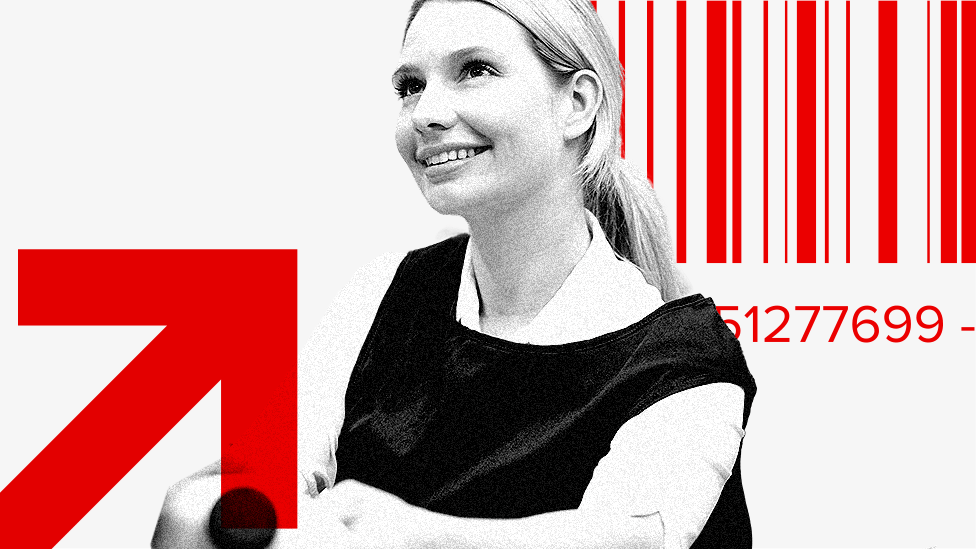Minimum wage to rise to £11.44 per hour
- Published
- comments
Watch: The rise is worth £1,800 for full-time workers, says the Chief Secretary to the Treasury, Laura Trott
The minimum wage is to increase by more than a pound to £11.44 per hour from April next year.
The minimum wage, known officially as the National Living Wage, is currently £10.42 an hour for workers over 23.
But Chancellor Jeremy Hunt has decided the rate will also apply to 21 and 22-year-olds for the first time.
It means a full-time worker aged 23 on the wage would receive a rise worth £1,800 a year. A 21-year-old would see an effective £2,300 annual rise.
The policy change comes ahead of Mr Hunt's Autumn Statement, which will see the chancellor outline the government's latest tax and spending decisions.
Mr Hunt told the Conservative Party conference in October that the minimum wage was set to rise above £11 in April, but the confirmed rises represent a 9.8% increase for over-23s on last year, and a 12.4% jump for workers aged 22 and 21.
The current minimum wage for those aged 21-22 is £10.18 an hour.
The separate National Minimum Wage for 18-20-year-olds will also increase to £8.60 an hour from £7.49, meaning in total, the above-inflation wage hikes will benefit 2.7 million low-paid workers.
Apprentices will also get a rise, with an hourly pay increase of over 20%, going from £5.28 to £6.40 an hour.
The chancellor accepted the proposals in full from the Low Pay Commission, which advises the government on the minimum wage, saying that the Conservatives' target to "end low pay" by lifting the living wage to two-thirds of a measure of average earnings, had now been met.
"The National Living Wage has helped halve the number of people on low pay since 2010, making sure work always pays," Mr Hunt said.
Bryan Sanderson, chair of the Low Pay Commission, said the recommendation of increasing the minimum wage to £11.44 "attempts to steer a path" through a "high degree of political and economic uncertainty".
The move comes as the higher cost of living has led to household budgets being squeezed, with people on low incomes the hardest hit by higher energy and food bills.
But such pay rises have not been without concern from some in industry. Last year's similar rise led to retail and hospitality businesses voicing worries over higher wage bills.
Responding to the announcement, Kate Nicholls, chief executive of the hospitality industry body UK Hospitality, wrote on X, formerly Twitter, that the rise was "a reminder that although government announces it, it is businesses who deliver it and why it is so vital other action is taken to reduce tax and costs, particularly [business] rates."
